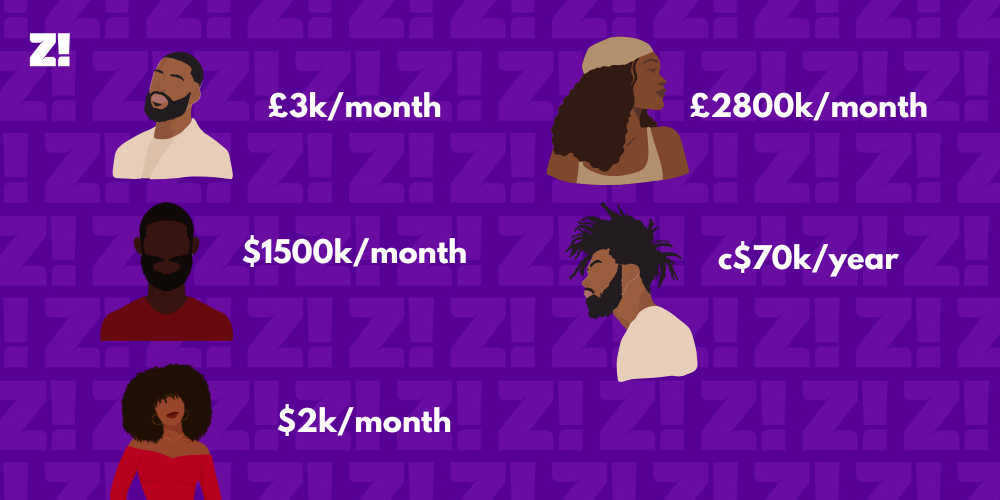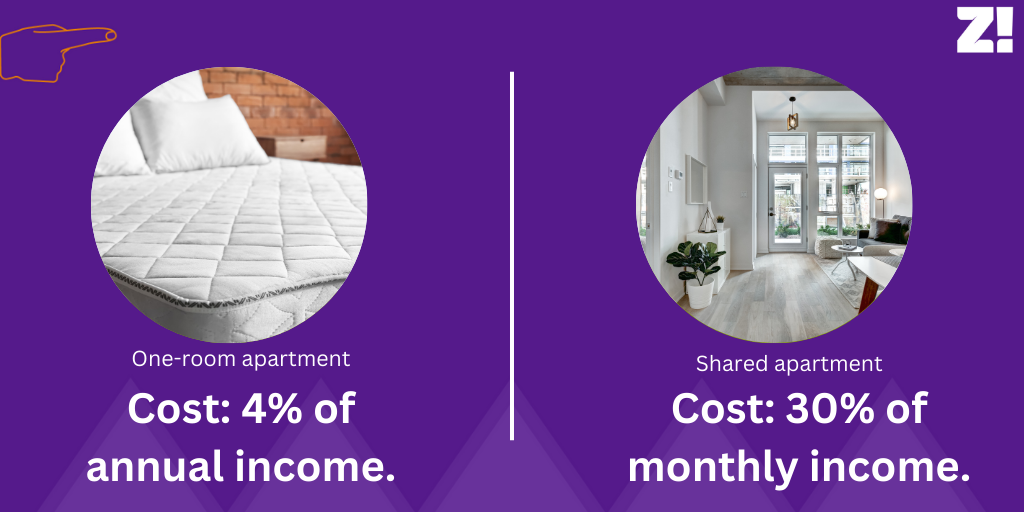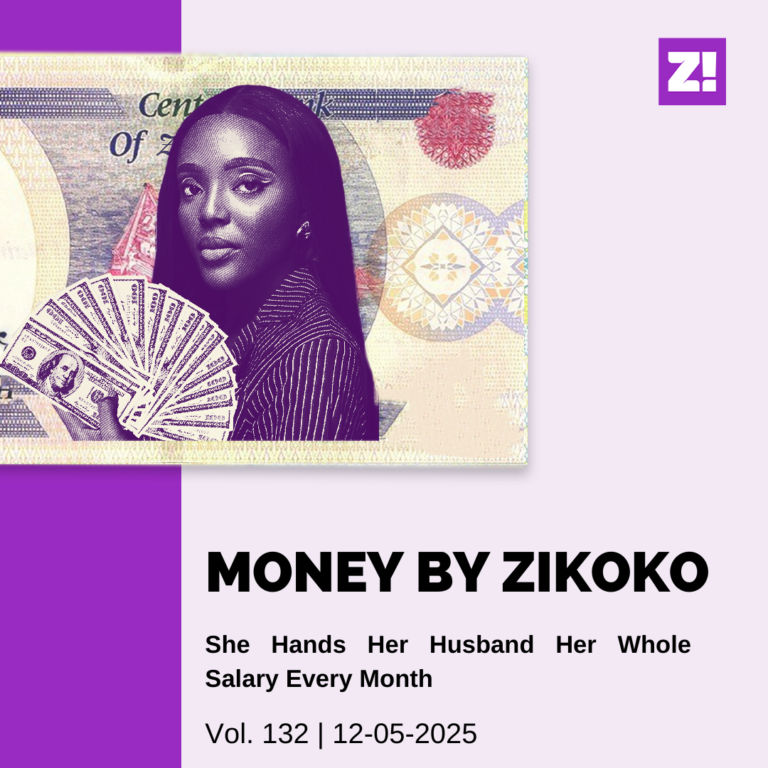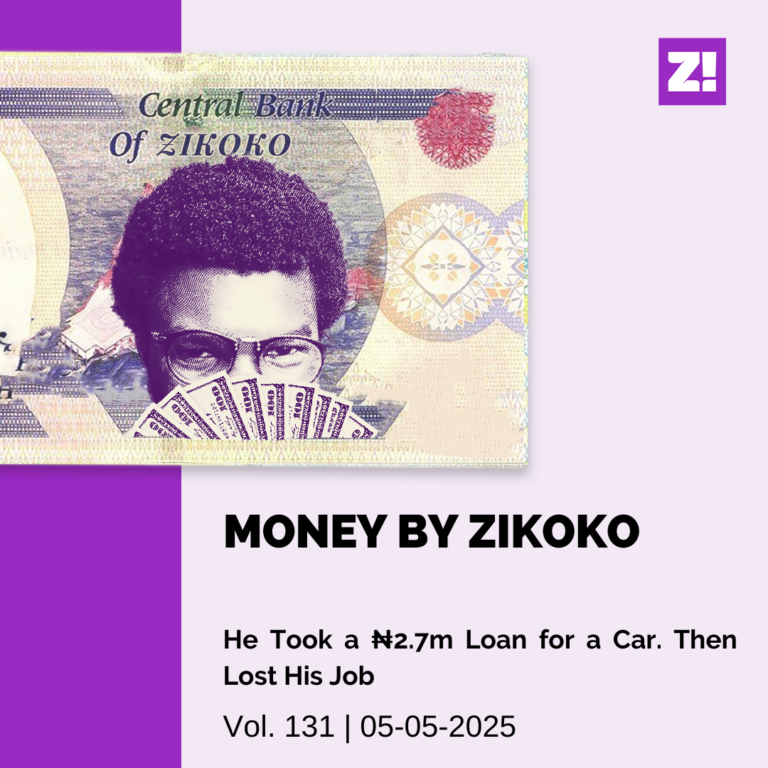In the past decade, thousands of Nigerians have left the country to find better economic opportunities. Moving abroad is almost seen as a golden ticket to financial stability — higher earnings, a stronger currency, and a better quality of life. But beyond the surface, navigating money in a new country is often more complicated.
We spoke to five Nigerians who moved to the UK, Canada, and the US in the past five years about how migration has reshaped their income, spending habits, and overall financial mindset.

Philip, 31, moved to the UK in 2022
Current income: £3k/month
Last income (in Nigeria): ₦300k/month
Can you describe your quality of life in Nigeria? I was a marketing communications manager for a fintech company. My salary was ₦300k/month and my wife made ₦400k/month. We combined our resources and kept our expenses low. Our rent was ₦300k/year for a self-contained apartment.
However, my work was on the island, and I lived on the mainland, so I spent about ₦60k on transportation every month.
Our ultimate financial goal was to japa, and we spent much time and resources saving and preparing for it. Naturally, that meant we had to make multiple tradeoffs. For example, I really wanted a car because I was tired of leaving my house at 5 a.m. to get cheaper bus fares. We also wanted to move into a 2-bedroom apartment, but both wants would have derailed our plans. So, we stuck with what we had.
We weren’t living a glamorous life, but we could take care of ourselves and our families and put something aside for our relocation, a process that took about two years.
What money-related change surprised you the most when you moved abroad? Cash is not king in the UK. When my wife and I were leaving the country, I converted some money into pounds. But we were stranded when we got to London because every service we needed insisted on card payments. It was quite a culture shock.
What’s the most significant way moving to a new country has shifted your financial mindset? My perception of debt has changed. I’ll use properties as an example because I work in property management, and my wife and I have started discussing buying a house.
It’s so freeing that it’s relatively easy to take a mortgage, drop a 25% downpayment, and spread the rest across 20 years. Yes, paying off a mortgage is like paying rent for two decades, but the house becomes yours.
An investor I work with tells me that if she has £600k to invest in properties, she’d prefer to divide the money into four parts to use as a downpayment for four houses rather than buying one £600k house outright. Then, she’ll put tenants in those houses, and their rents will pay the mortgage.
You need to become comfortable with using debt to your benefit. Sometimes, it’s a pathway to financial freedom, and I got on board with the program.
What does your life look like now? The key word is stability. My wife and I have fewer things to worry about, especially now that we have a kid. Healthcare is almost free—the insurance pays for it—and there’s no limit on what’s covered.
When I lived in Nigeria, I barely worked at a place for one year. I was always optimising for a better-paying job; the only way I knew to do that was to switch jobs as often as possible. I’ve been at the same job in the UK for a while, and I’ve grown and gotten promotion and salary reviews. In addition to this, I have a better work-life balance.
That said, the cost of our utilities has increased. We pay £1,250/month for a 2-bedroom apartment. Electricity costs are around £325/month, and council tax is another £250.
The good thing is that I’m earning considerably more, and my wife makes money, too. Being married works here because neither of us can afford all of these alone. It’s possible, but it’d also be incredibly difficult.
Our finances have grown since we’ve been here. We’ve made more progress working for two years in the UK than we did in over five years.
If you do the same thing consistently here, you get results. That wasn’t my experience in Nigeria.
Tayo, 34, moved to the US in 2024
Current income: $1,500/month
Last income (in Nigeria): ₦200k/month
Can you describe your quality of life in Nigeria? I worked at a private school for 10 years, and my last salary was ₦200k/month. This was primarily what my family—my wife and three kids—lived on. Also, I built a few businesses and other side hustles from the ground up: I had a bookshop and a laundry business my wife manages.
My income wasn’t as great as I’d have liked, but I made it work. The key factor was that I was very prudent with money. For example, my house rent was ₦300k/year, and two months’ worth of my salary could easily cover it. When I wanted to invest in real estate, I knew I had to save up for it, and I managed to purchase a half-acre piece of land. However, I had my struggles, too. I’d have liked to stay 100% debt-free, but I took a few business loans.
What money-related change shocked you when you moved abroad? The volume of monthly bills. The system is designed to take your income the second you get paid.
There are multiple monthly recurring bills: phone, internet, electricity. Then you have to think of rent as a monthly expense. In Nigeria, I paid rent once a year and moved on to other things. I wish that was a thing here, too.
Also, I couldn’t—and still can’t—get over how easily accessible credit is. My life philosophy is to avoid debt unless it’s a last resort, and I only took business loans in Nigeria. In the US, using my credit cards for everyday use is a price I must pay to stay. It’s not great for me, but that’s how the system works.
What’s the most significant way moving to a new country has shifted your financial mindset? My relationship with black tax has changed. The US quickly taught me I can’t take on other people’s responsibilities or finance their lifestyles.
Short story: My first paycheck in the US was $1300, which I thought was a lot of money. My thinking, of course, was to take care of my people in Nigeria. So, I started sending money home — ₦50k here, ₦20k there. In little time, the money got down to $200. Then the monthly bills came, and I found out about the number of things I had to pay for.
I prioritised helping people in Nigeria because of our communal nature, but it’s impossible here. Now, I don’t care much about expenses that aren’t within my budget. I only send money from my miscellaneous budget to people who fall outside the scope of my wife and kids. If it runs out, it runs out.
Also, I was pro-saving in Nigeria, but that thinking has shifted, too. My time here taught me that building wealth through savings is almost impossible. Investing is king. A few months ago, I started buying some ETFs and putting money into the S&P 500 and Roth IRA, which is pretty much my retirement account.
What does your life look like now? I’m not sure yet. I’m still trying to figure out if my quality of life has improved. The competition for resources is fierce for immigrants.
At the moment, I make $1500/month as a graduate assistant. Thankfully, my funding covers the cost of rent. Without that cushion, 70% of my income would have to go to accommodation alone.
I like that the basics are sorted, but building something new and sustainable takes time. The first step is bringing my family here, and I’m currently saving for that. I’ll finally have my answer when this happens.
Cynthia, 29, moved to the UK in 2022
Current income: £50k/year
Last income (in Nigeria): ₦250k/month
Can you describe your quality of life in Nigeria? After I finished law school in 2020, I moved to Lagos to work. My first job paid me ₦80k/month. Two years and a few jobs later, this number grew to ₦250k/month. Also, my ex, who lived abroad, sent me ₦250k/month, bringing my monthly inflow to ₦500k. As you can imagine, I was comfortable and could afford a decent lifestyle — I took Ubers everywhere and outsourced my laundry and house cleaning.
I always had help, which was an important safety net. For example, when I moved to Lagos, I squatted at a friend’s with other girls. But we fell out. Then, I lived with my family until I moved to a shared two-bedroom apartment, and the rent was ₦800k/year. My parents sent me ₦500k, and my boyfriend paid the rest.
I left Nigeria because I became disillusioned with the country after the 2020 EndSARs protest. I also suspected the current President would win the elections, and I had no faith in him.
What money-related change surprised you the most when you moved abroad? Labour costs more in the UK. In Nigeria, I paid ₦6k/month for cleaning. In the UK, the average cleaning costs between £12/hour and £20/hour, which is very close to my hourly wage. The same goes for food. I spend between £20 and £40 per meal, so I’ve had to adjust by cooking more.
It’s not that I can’t afford these things, but it doesn’t make financial sense anymore.
Another shock? I feel every pound I spend. In Nigeria, I could justify spending ₦300k on a single purchase. But here, I think twice before spending more than £100. That shift has made me more intentional with money.
And then there’s my visa situation. I renewed my visa recently for £3500, and even though my partner refunded me, I was still upset. It’s frustrating that I have to pay to stay in the country.
What’s the most significant way moving to a new country has shifted your financial mindset? The biggest shift has been in how I budget and invest. I barely paid attention to either in Nigeria because I had a stronger support system.
But the moment I landed in the UK, I felt an intense fear of everything that could go wrong. Although I’ve settled now, I still fear being deported to Nigeria without anything to fall back on. As a result, I’m focused on what I can control, and investing is a big part of it. About 10% of my monthly income goes into my pension fund, and I’ve started putting money in the S&P 500.
I really want to have a soft landing when I retire. For context, I don’t want kids. My ultimate goal is to make enough money to afford a quality private care home when I’m old. This future is possible in the UK, and I must work to achieve it. I have four decades to plan for that.
What does your life look like now? I’ve lived in the UK for almost three years, and the quality of my life has only improved. Let me tell you something: I recently spent £1300 on clothes, which I could never do in Nigeria. This is exactly where I want to be.
But I have a lot of help, so my experience may differ from many people’s.
I work with the government and make £50k/year, which comes down to £2800 per month. My monthly net would be higher, but my pension contributions take a chunk of my net.
Now, my rent is £800/month, but I don’t pay for it; one of my “men” handles it. My partner is also moving in with me shortly, and we’ve talked about him picking up the rent and other household bills. This means I have an extra £800 to save every month.
Beyond the money, my life feels fuller. In Nigeria, travel wasn’t even an option. Now, I take 3 to 4 trips a year. Even the small things—like buying cotton and linen sheets—feel like luxuries I can finally afford. It’s hard to explain, but I don’t constantly feel like I’m in survival mode anymore.
Tony, 25, moved to Canada in 2021
Current income: $70k/year
Last income (in Nigeria): ₦63k/month
Can you describe the quality of life in Nigeria? My life was simple. Before leaving the country, I was an intern video editor and earned ₦30k/month. It was also my service year; the government paid me ₦33k. I thought my income was decent, but it was because I had no financial pressure. I lived rent-free with my parents, and my most significant expense was my commute to work.
At some point, I moved in with a few colleagues to be closer to work. There, the only thing I worried about was contributing to household expenses.
I got my student visa, which my parents funded, and moved to Canada in October 2021.
What money-related change shocked you when you moved abroad? I’ve lived in Canada for three years and haven’t gotten used to not getting SMS transaction alerts. I may get an email notification for money sent and received, but that’s it.
It made it almost impossible to track subscription payments. Sometimes, I found random charges on my account and had to determine where they came from. It’s not very intuitive. Now I have a notepad where I list all the services I’m subscribed to, their due dates and the cards the charges go to.
What’s the most significant way moving to a new country has shifted your financial mindset? I had to understand how the credit card system works. When I arrived in 2021, it didn’t sit well with me that I had access to money that wasn’t mine. I was uncomfortable with the credit card options and feared getting carried away was easy.
I’ve lost most of that fear now. As a result, I feel more secure in my finances—knowing that I don’t need all the cash in the world or have to wait until payday before I can sort basic things out. This gives me a sense of security, and I’m hardly flustered about money anymore.
What does your life look like now? My quality of life took a dip when I first moved to Canada. For context, I had to work two jobs and crazy hours. That said, I had some safety nets in my parents and a few family members, who paid my first-year tuition and my rent for the first six months. This took a heavy weight off my shoulders. However, I had to figure out most of these myself in the following two years, and this was where the crazy work hours came in.
Three years later, I’m a software engineer making about $70k/year. It’s the base pay for my experience level, but it works. That puts me around the low- to middle-income level. It’s not where I want to be, but I could be worse off.
I’m better off here than I was in Nigeria, and for good reason. The effort I’ve put into growing my income and building something here is on the same scale as the rewards I’ve gotten. That wouldn’t have happened in Nigeria.
Oyinloluwa, 29, moved to the US for school in 2021
Current income: $2k/month
Last income (in Nigeria): ₦100k
Can you paint a picture of your quality of life in Nigeria? I was a graduate assistant at a Nigerian uni and ran my Master’s programme concurrently. Every month was pretty much figuring out how to get by with my ₦100k salary; it was my only income source and funded my education. I had to be very intentional about money to prepare for my next life stage — going to school abroad. My money was tied in cooperative schemes, and I had salary deductions to sort out my Master’s payment. All this left me with about ₦30k-₦40k to spend for the rest of the month.
It helped that I lived in a small town, so it was relatively easier to sort out the basics. For example, my rent was about ₦50k/year, and the distance between my house and work was short, cutting down my transportation costs.
That said, even though I was operating on low maintenance mode, there were multiple times I had to contact my dad for loans. In retrospect, I think I struggled more than I remember. It wasn’t clear at the moment because I had my eyes on a specific agenda—moving to the US. Everything else was secondary.
I got a scholarship and moved to the US in August 2021.

What money-related change surprised you the most when you moved abroad? Housing costs and the monthly rent schedule. In Nigeria, I paid my rent once and was done with it. Then I came here and found out I had to constantly think about making rent every third day of each month. My rent + utility is $600/month, and I share the apartment with three people. This number would easily climb to $1k/month if I lived alone. Having to plan and set aside money every month took some toll.
On the plus side, it also shocked me that I could live without thinking much about the cost of things. I didn’t know that was possible. The context here is that I was always on a tight budget, and spending money on the non-essentials was always hard. But I got here and could do that without derailing my budget. It shouldn’t have surprised me, but it did.
What’s the most significant way moving to a new country has shifted your financial mindset? I’ve lived here for almost four years, and I’m getting used to the fact that I don’t necessarily have to be stingy with myself, for lack of a better word. It’s like a switch flipped in my brain, and now, I operate from a place of abundance or something close to it. The primary manifestation of that is that I don’t beat myself over the cost of things. If I want it and can afford it, I go for it. The heavens won’t fall.
Not much has changed about how I save and budget. I was decent at it when I lived in Nigeria and have even become better. The primary driver for this is the constant realisation that I have bills to pay and live far away from home.
What does your life look like now? I’m still a graduate assistant, and my only source of income is from my scholarship. I get paid a monthly stipend of ~$2k/month to sustain my living, which covers the basics. That said, it can only go so far, especially compared to what I might earn from a full-time job. So, I don’t think my financial reality has turned 180 degrees. For context, students in the US are classified as low-income earners.
That said, on a basic level, my living standards have improved dramatically. I easily save more than I ever did in Nigeria, and I’m not one expense away from reaching out to my parents for help. That means something.
Speaking of parents, an element of black tax is in my life now, and I can do much more for my folks. At times, it can be overwhelming, but it’s a tradeoff I’m mostly comfortable with.
I plan to remain in academia after my PhD. If I get a postdoc position, my earnings will double. The standard base pay for many academic postdoc roles is ~$50k—$60k/year, with the upper end in states with a higher cost of living.
That’s a start.
Names have been changed for anonymity.




